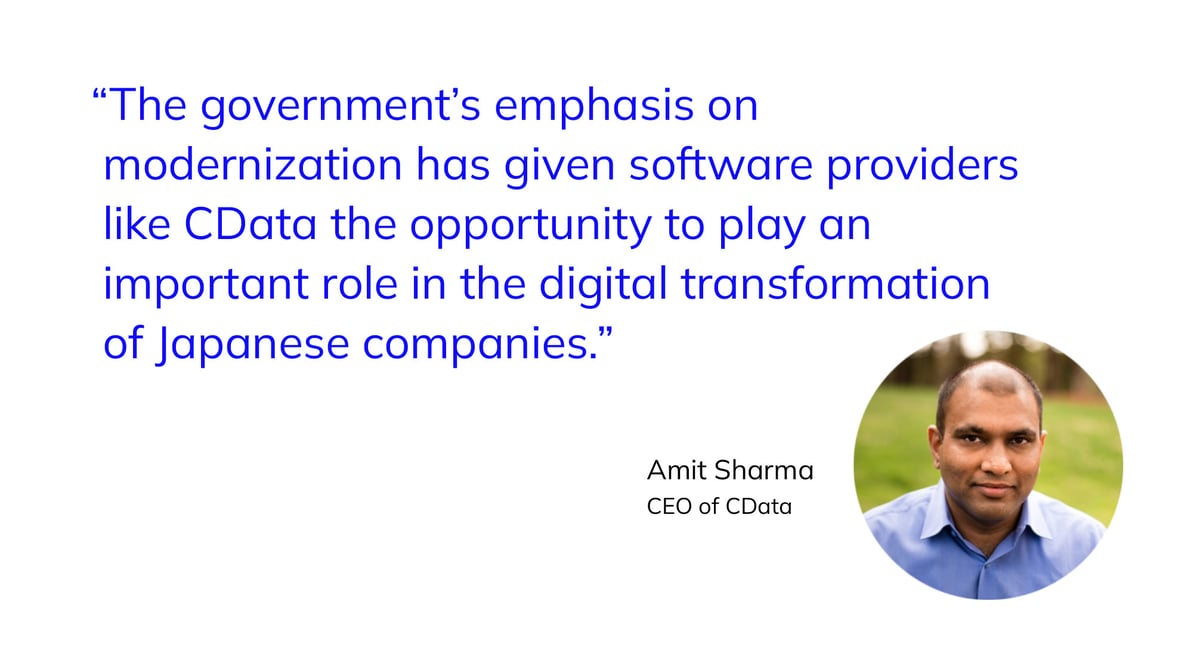
Japan: A Home for Innovators and Entrepreneurs
An adage holds that rules are meant to be broken. Yet when rules are designed to simplify, streamline and facilitate, they feel less like roadblocks and more like guardrails on the highway to success. It is with that in mind that Japan designed some of the world’s most business-friendly rules.
Focused on developing a promising business environment for foreign investors, Japan’s free and fair rule-based market offers high-value-added opportunities with limited risk. Transparency instills confidence among investors, while the country’s quality business environment and harmonized rule of law provide a strong platform for exciting business ventures in one of the most dynamic regions in the world.
Thoughtful rulemaking and policy design pay off. Japan ranks 2nd globally for legal and administrative systems.[1] In turn, overseas businesses and investors continue to prioritize Japan. Case in point: Following a dip in 2019 amid the outbreak of Covid-19, inward Foreign Direct Investment (FDI) to Japan increased by 65.2% on year to $66 billion in 2020.[2]
The increase underscores the appeal of Japan’s competitive advantages and the ease with which investors can access them.
Successful business relationships are built on the bedrock of trust. For that, investors around the world turn to Japan.
Unlocking Opportunity Through Efficiency
Digital technologies are revolutionizing nearly every aspect of the way the world does business. For instance, over 80% of businesses in Bloomberg’s audience increased their investments in digital solutions over the past year.[3] The reason is clear: without advanced digital tools, most modern businesses will not succeed.
Japan’s administrative sectors have taken that to heart. Many are streamlining processes to ensure easier access and greater efficiency. One example is the digitization of the Japan External Trade Organization’s (JETRO) Invest Japan Business Support Centers (IBSCs). IBSCs have long supported foreign companies entering Japan, providing the resources and expertise required for success. Digitization makes those service even more accessible.

Tellus You Care, a U.S.-headquartered health-tech start-up that aims to transform elderly care with cutting-edge technology, is one of many businesses that have benefitted from JETRO’s IBSCs.
“JETRO has been really helpful to Tellus,” says Tania A. Coke, CEO of Tellus You Care, which established itself in Tokyo in 2020. “JETRO helped us get the legal advice we needed to establish ourselves in Tokyo. Another helpful thing JETRO did was provide office space where we could bring our team together. They also introduced us to larger companies, which was really incredible business support. All of those little things really matter to a start-up.”
After establishing itself in Tokyo, Tellus You Care found that Japan’s business-friendly regulatory environment accelerated growth.
“The regulatory environment for what we do is very supportive,” Tania says. “There are a number of subsidies available to our company. We create technology that is adopted by elder care facilities, who get subsidy support from the government to adopt new and helpful technology like ours. The world has a lot to learn from how Japan approaches technology and regulation.”
Tellus You Care creates both hardware and software, developed between San Francisco and Tokyo offices. Tellus is actively looking to work with Japanese manufacturers. Localized production positions the company well for further growth in the Japanese market.

“Many countries are looking to Japan to see what technology is being adopted for the aging population,” Tania says. “We have gotten a number of inquiries from Australia, Singapore, China, Korea and the United Kingdom because of the success we’re having in Japan. While our focus is Japan right now we remain optimistic that we can bring our technology elsewhere because we're solving a global issue.”
Enjoying Trust and Transparency
Successful business relationships are built on the bedrock of trust. For that, investors around the world turn to Japan. According to Bloomberg’s latest FDI study, overseas investors cite political stability, strong rule of law and sturdy investment law as three of the most reassuring factors when investing in Japan.
The country’s strong national characteristics coupled with a huge market opportunity led American data connectivity company CData to expand its operations in Japan in 2016. As Japan embraces digitalization, CData helps companies move data to the cloud, tapping into a massive market opportunity.
“Japan is very open to doing business with foreign companies,” says Amit Sharma, CEO of CData. “The governments of Japan and the United States enjoy a tight relationship, allowing U.S.-based companies to grow their businesses in Japan with no hardships.
“The government’s emphasis on modernization has given software providers like CData the opportunity to play an important role in the digital transformation of Japanese companies.”

As businesses strive to build a better world, realizing new market opportunities in a sustainable and transparent way is more important than ever. Reforms to Japan’s Corporate Governance Code (CGC) reflect that. Launched in 2015, the CGC set out fundamental principles on the corporate governance at listed companies in Japan. A recent set of revisions enacted in June 2021 enhances board independence, promotes workplace diversity and prioritizes sustainability and ESG.[4] All of that with the aim of stimulating a transparent dialogue with investors.
“We formed joint venture with a well-known, publicly listed Japanese company in data integration, Asteria,” Amit says. “Asteria has become our first OEM partner in Japan, embedding over 40 SaaS connectors in their top share product, ASTERIA Warp. Trust is a very important factor in any market, and our partnership with a market-leading company in Japan has helped improve our operations in Japan.”
Trust and transparency also serve as the foundations of Japan’s dependable legal and regulatory system. As mentioned by the CEOs of both Tellus You Care and CData, all businesses are treated fairly, and surprises are rare. Businesses often feel taken care of in Japan.
Take Intellectual Property (IP) rights. Japan ranks 12th globally and fourth in Asia Pacific on the Intellectual Property Rights Index.[5] Strong IP rights foster innovation. Without protection, businesses, entrepreneurs and innovators would not reap the full benefits of their hard work. Japan provides the reassurance and incentives they need to turn ideas into inventions and inventions into marketable products.

“An emphasis on quality, security, and compliance has meant Japanese businesses are traditionally slower to adopt cloud-based technologies than those in the U.S.,” Amit says by way of example. “However, digital transformation has become increasingly important in the market, and Japanese organizations are looking to the cloud as a platform to fuel innovation and growth.”
Businesses can also access a wide range of incentives. The Regulatory Sandbox launched in 2018 provides a testbed for innovative technologies across financial services, healthcare and mobility. The establishment of an Open Innovation Promotion Tax System provides yet another incentive for innovation. Corporations, organizations, and corporate venture capital located in Japan that invest more than a certain amount for the purpose of conducting open innovation in young start-ups that are not yet listed can receive a 25% income tax deduction.[6]


Find A Place to Call Home
Not only does Japan offer a great platform to do business, it also provides a fantastic place for the people who run those businesses to call home.
The Southern Kanto region of Japan, where Tokyo is located, scores top marks for jobs, safety and health in the OECD’s Regional Well Being Report.[7] Osaka ranked second in the Global Livability Index, while Tokyo ranked fifth.[8] Meanwhile, Kobe, Yokohama, and Nagoya boast strong rankings in the Quality of Living Index.[9]
For businesses, entrepreneurs and innovators keen to establish themselves overseas and find a new place to call home, Japan awaits them with unparalleled lifestyle options and ample opportunity.
